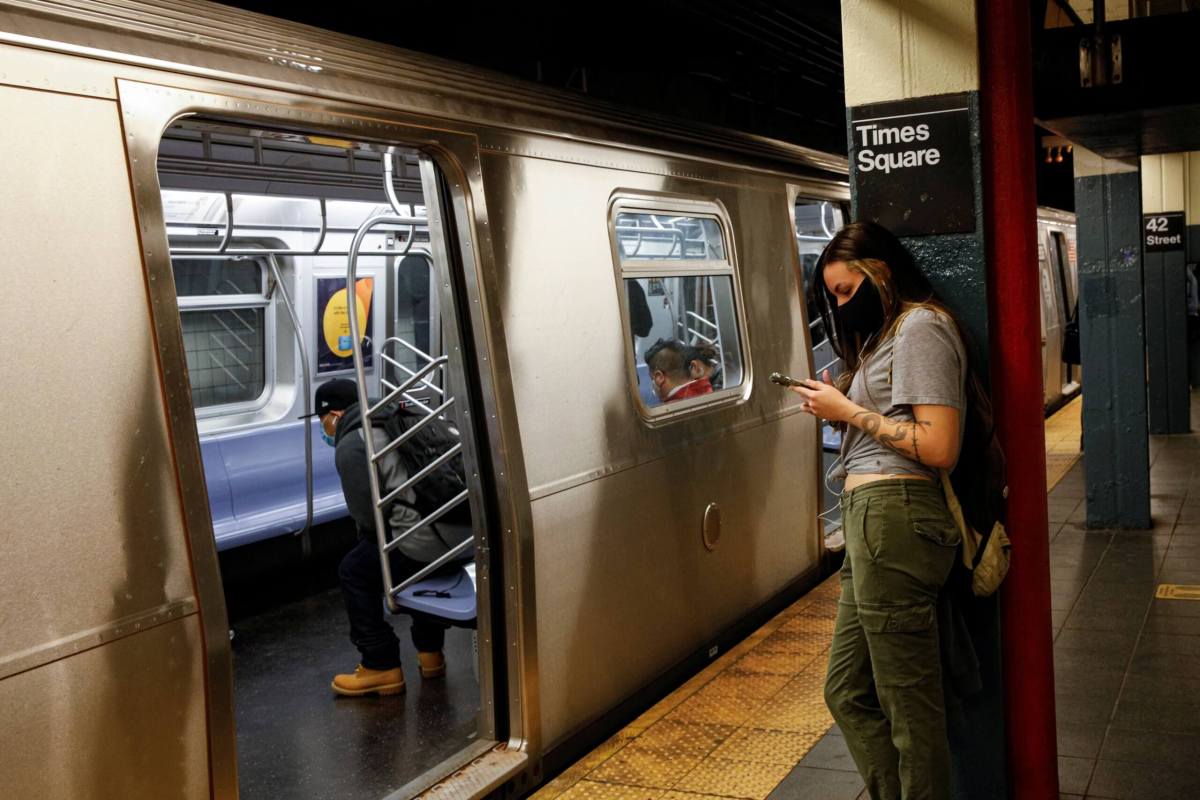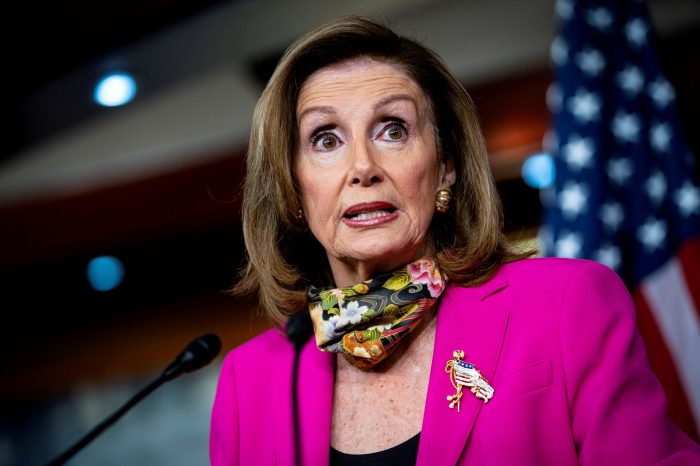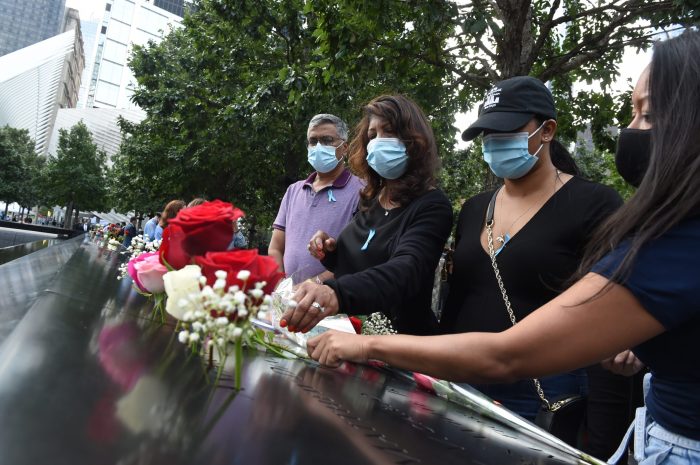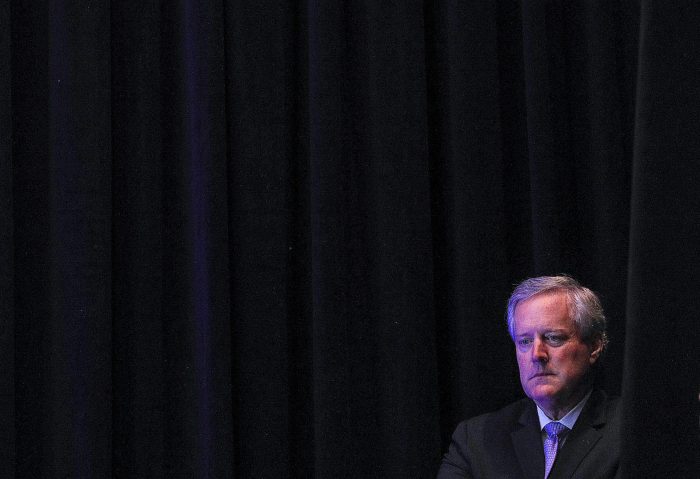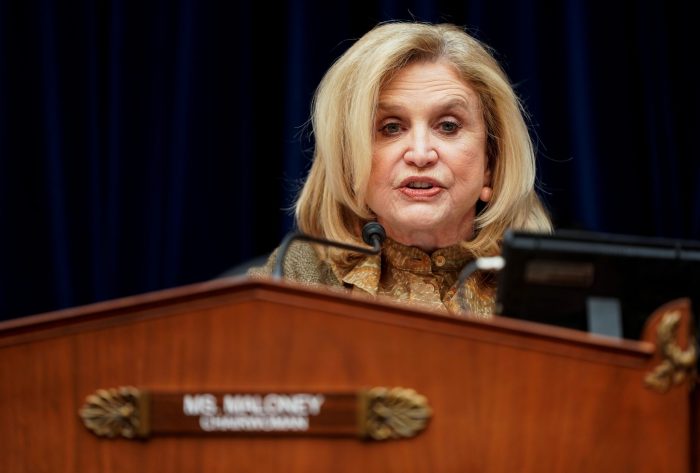The MTA is set to get a $6.2 billion lump sum in COVID-19 aid from the federal government, Senate Majority Leader Chuck Schumer announced Wednesday.
The grant is the final batch of the roughly $14.5 billion the feds earmarked in the American Rescue Plan Act and other relief packages to help bail out the agency struggling with drops in ridership and revenue since the pandemic began almost two years ago.
“This is the largest federal grant in transit history ever and it provides true liquidity for the MTA,” said Schumer during a press conference via Zoom on Jan. 12. “In the past these grants were dribbled out and the MTA was never sure that they could plan ahead, but this $6 billion gives them deep, deep liquidity.”
The Washington dollars are primarily going toward MTA’s operating budget to finance running trains and buses, and will continue to allow the state-controlled agency to stave off fare hikes, major service cuts, and layoffs, Schumer said.
The feds are slated to send a separate $10 billion to the MTA as part of President Joe Biden’s $1.2 trillion infrastructure bill passed in November, which the agency plans to divert to capital projects like the Second Avenue Subway extension to East Harlem.
But MTA budget officials have warned that the rescue money from Uncle Sam will dry up by 2025 and that the agency will have to find other ways to balance its budget, which it is legally required to do.
Former MTA Chief Financial Officer Bob Foran recommended the agency consider “right-sizing” or to “adjust” service starting in 2023 to reflect post-pandemic ridership patterns, something some MTA board members balked at, saying it was just a euphemism for cuts that would deter riders when the agency needs them most.
Even with increasing fares, the agency still faces a $1.4 billion hole by 2025, Foran forecasted in November.
MTA’s acting chief Janno Lieber, meanwhile, has said he’s lobbying state officials to treat transit like a public service, such as the Fire Department or Sanitation, urging lawmakers to find other sources of revenue rather than make up deficits on the backs of riders.
The agency’s latest financial plans from December assume that fares will bring in $4.86 billion out of the total $7.82 billion in operating revenue in 2022, or about 62%.
Mass transit will also rake in almost twice the amount MTA expects from drivers tolled while crossing its bridge and tunnel at $2.6 billion, and only $708 million will come from what the agency describes as “other revenue.”
Schumer was supportive of Lieber’s idea, saying the more funding the agency can get from government sources, the better.
“We always know the farebox pays some of the MTA expenses, but I believe it is a public service and the higher percentage we can get that comes from city, state, and federal help, the better, and I’ll do my share on the federal side,” he said.
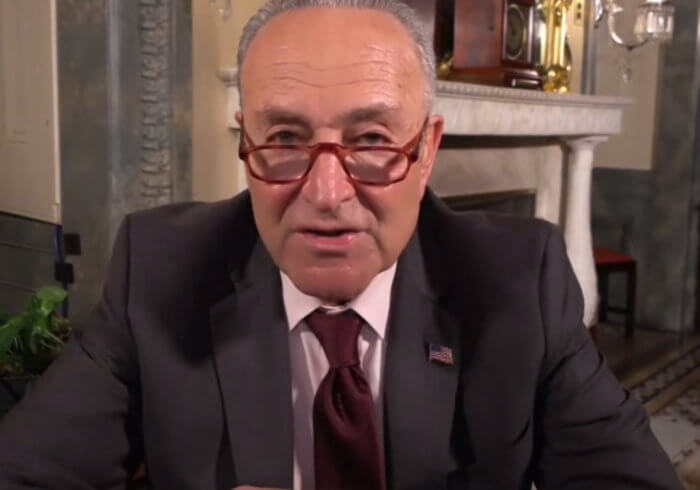
Governor Kathy Hochul, who controls the MTA, vowed to put off fare increases and service reductions until July, with another one scheduled for March 2023.
The surge of the highly-contagious Omicron variant has once again caused a drop in ridership in recent weeks, calling into question MTA’s budget plans relying on 2020 projections by consultants at McKinsey Group which estimated ridership would return to 80% of pre-COVID levels by the end of 2022, the New York Post reported.
Ridership sank to a low of 39% compared to 2019 numbers on Jan. 7, when the state registered more than 90,000 positive cases, and down from highs of 74% pre-COVID rates on Nov. 21, before the new variant’s surge.
The bug also caused between one-fifth and a quarter of subway and bus operators to not show up for work last week, the Daily News reported.
MTA has suspended three lines — the B, W, and Z — for three weeks come Thursday due to the shortages.
Schumer said he will work to get “robust” operating funding for the agency in the February budget negotiations on Capitol Hill.
“I hope to get a robust allocation that will help the MTA continue and deal with these deficits,” he said.
Lieber praised Schumer and his fellow politicians at the federal and state level for giving the agency much-needed funds.
“We are grateful to Senate Majority Leader Schumer, the New York delegation and Governor Hochul for their consistent support of mass transit,” the transit honcho said in a statement. “Our subways, buses and railroads are the secret sauce that keeps the region moving, helping to rebuild New York’s dynamic economy while battling climate change. This funding helps the MTA continue to provide top-tier service and in the near term avoid fare increases.”



